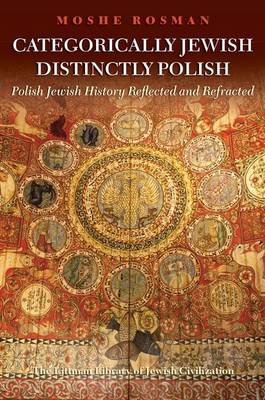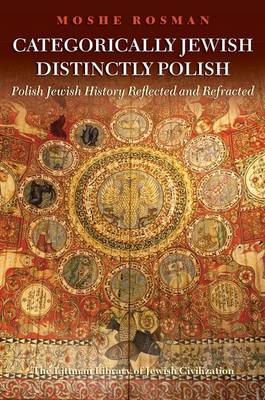
En raison d'une grêve chez bpost, votre commande pourrait être retardée. Vous avez besoin d’un livre rapidement ? Nos magasins vous accueillent à bras ouverts !
- Retrait gratuit dans votre magasin Club
- 7.000.000 titres dans notre catalogue
- Payer en toute sécurité
- Toujours un magasin près de chez vous
En raison de la grêve chez bpost, votre commande pourrait être retardée. Vous avez besoin d’un livre rapidement ? Nos magasins vous accueillent à bras ouverts !
- Retrait gratuit dans votre magasin Club
- 7.000.0000 titres dans notre catalogue
- Payer en toute sécurité
- Toujours un magasin près de chez vous
110,45 €
+ 220 points
Description
Moshe Rosman's revolutionary approach has become a cornerstone of Polish Jewish historiography. Challenging conventions, he asserts that the 'marriage of convenience' between the Jews and the Polish--Lithuanian Commonwealth was a dynamic relationship that, though punctuated by crisis and persecution, developed into a saga of overall achievement and stability.
With that fundamental message this book forges a thematic survey of Jewish history in early modern Poland. These essays, written by Rosman over the course of a distinguished career, have all been updated and enhanced with new detail and nuanced arguments, taking account not only of new archival material and research but also of the ongoing evolution of the author's own knowledge and perspectives. Some appear here in English for the first time. The volume's structure highlights key topics for understanding the Polish Jewish past: relations between Jews and other Poles; Jewish communal life; Polish Jewish women; and hasidism. One section analyses how this past has been presented in both scholarly and popular modes. The essays are crafted to place them in dialogue with each other. Analytical introductions weigh their significance in the light of modern and postmodern Jewish and Polish historiography. An extensive general introduction sets the context of the history portrayed here, while a thoughtful conclusion elucidates the larger motifs that emerge.Spécifications
Parties prenantes
- Auteur(s) :
- Editeur:
Contenu
- Nombre de pages :
- 549
- Langue:
- Anglais
- Collection :
Caractéristiques
- EAN:
- 9781906764852
- Date de parution :
- 01-04-22
- Format:
- Livre relié
- Format numérique:
- Genaaid
- Dimensions :
- 164 mm x 243 mm
- Poids :
- 997 g

Les avis
Nous publions uniquement les avis qui respectent les conditions requises. Consultez nos conditions pour les avis.






